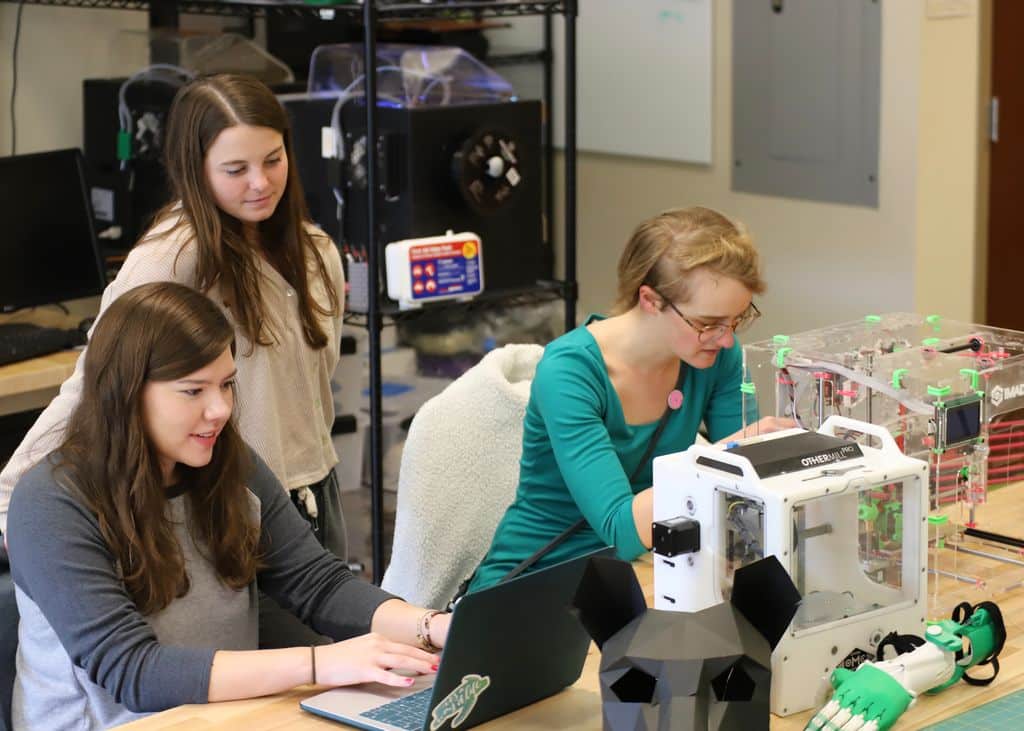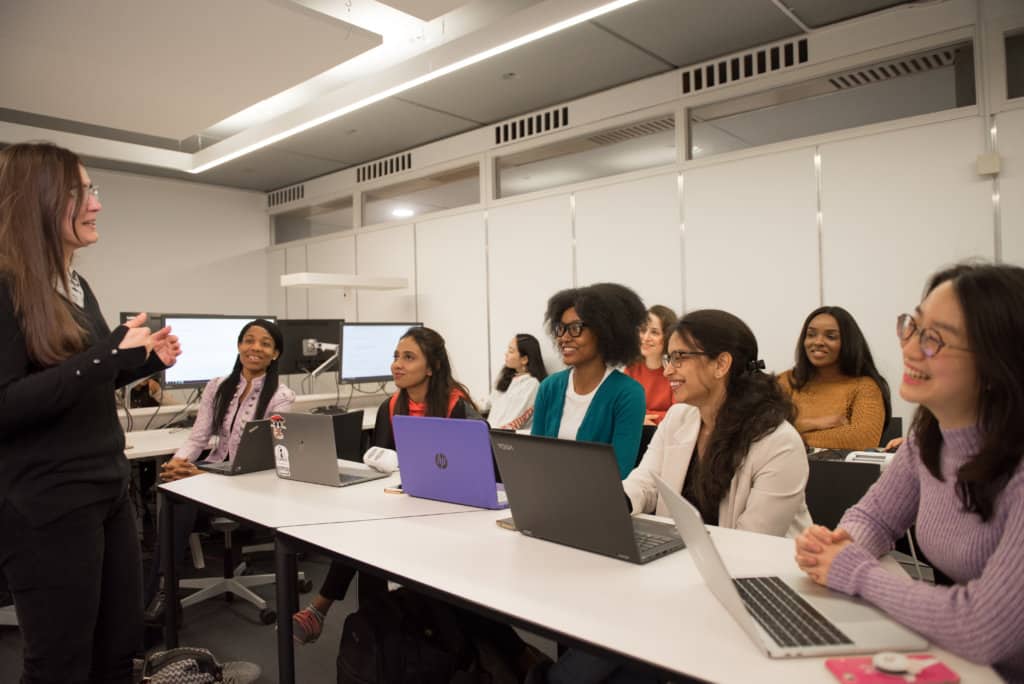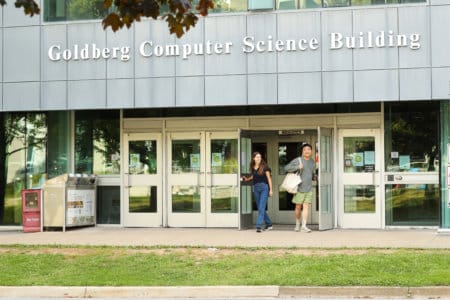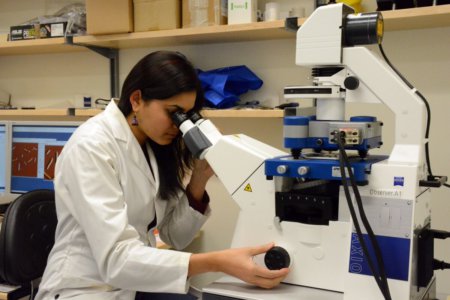
From the advancement of artificial intelligence to the creation of powerful algorithms, computer science is at the heart of every new development in our modern world. It’s become a transformative force in today’s society, empowering individuals, organisations and world leaders to have more agency and autonomy in an increasingly digital landscape.
This makes a computer science education more relevant than ever. Most programmes in computer science teach the fundamentals of the subject: introducing students to algorithms, programming languages, data structures, computer architecture, software development and more. In short, they give students all the tools needed to drive innovation, create new opportunities and design secure networks.
The best universities take this one step further. Through real-world exposure and hands-on learning, these institutions take every opportunity to expand a student’s expertise in computer science. It’s the very difference that separates the traditional graduate from the aspiring changemaker who leverages technology for the advancement of society.
Here are three universities leading the charge:
Dalhousie University

Dalhousie University offers a range of innovative programmes for every computer science enthusiast. Source: Dalhousie University
Harnessing technology to drive real and impactful change — that’s what Dalhousie University’s Faculty of Computer Science aims to inspire. As one of the few standalone computer science faculties in Canada and home to the largest research and education centre for the subject in Atlantic Canada, every aspect of learning here is tailored to ensure every graduate has every chance to succeed in the field.
Take the Bachelor of Computer Science. Alongside gaining foundational knowledge in the subject, students have access to integrated co-op programmes. These not only give students the chance to alternate between the classroom and workplace but allow them to apply their learnings directly to the real world. It’s an effective combination that Bachelor of Applied Computer Science (BACS) students are afforded, as well – pairing well with their deep understanding of technology with in-demand skills such as communication and project management. The BACS trains students to be leaders of large-scale digital projects who can tackle real-world problems by developing and implementing technology solutions for their organisations.
The faculty’s graduate programmes are just as exciting. The interdisciplinary Master of Digital Innovation enables students to customise their experience according to their career goals by pursuing specific certificates that focus on a distinct set of skills and knowledge. Classes are dynamic as the programme welcomes applicants from a diverse range of disciplines beyond computer science, such as business, law, and health.
Spanning 16 months, the Master of Applied Computer Science (MACS) includes courses in systems, communications, and data management. Knowledge gained in them can be applied in either a paid industry internship, an entrepreneurship work term, or a research project with one of its stream options.
“I really like the applied approach of it, of how even the courses were very practical in the sense that it wasn’t only the theory of it, but you could also get to practise and play with it,” shares MACS graduate Genny Centeno Metri. Canada’s friendly immigration policies ensure that students have a clear pathway to working in Halifax — a city that’s becoming an exciting technology and innovation hub. A variety of scholarships for international students of all backgrounds and identities are available, and opportunities in the city such as hackathons offer a direct link to the industry. Combined, it’s a fool-proof route into a fast-paced and successful career.
Find out more about Dalhousie University
UNC Charlotte

UNC Charlotte covers a broad range of topics within the computer science discipline. Source: UNC Charlotte
Championing inclusivity, the College of Computing and Informatics at UNC Charlotte is opening doors for every student with a passion for computer science. It is the number one producer of African-American, Hispanic and female computer science graduates in North Carolina — recognising that diversity is the key to finding creative and innovative solutions to global problems.
Here, students can pursue a range of future-focused undergraduate programmes designed to nurture confidence and skills in the field of computer science. The BS in Computer Science is a natural choice for technology enthusiasts — offering seven different concentrations alongside 25 hours of core computer science courses. Nine to 15 hours are set aside every semester to pursue a discipline outside computer science, ensuring a well-rounded education.
For those looking to deepen their knowledge of the discipline, a range of graduate programmes with specialisations in various areas of the field are available. The MS in Computer Science equips students with the advanced skills and knowledge needed to work in the high-tech industry or doctoral study. The MS Cybersecurity is more focused on cybersecurity and privacy — grounding students in protecting valuable online information from cyber attacks.
Educators and students at UNC Charlotte are not just learners — they are explorers, keen to keep pushing the boundaries of knowledge in computer science. Research initiatives are an active aspect of life at the College of Computing and Informatics, zoning in on everything from configuration analytics to automation capabilities. The college faculty is made up of experts, each with their own area of expertise — making for a broad spectrum of information on offer.
The result? Creative and career-ready problem-solvers ready to address global challenges in technology.
The University of Nottingham

Teaching quality and state-of-the-art facilities elevate the postgraduate experience at The School of Computer Science at the University of Nottingham. Source: University of Nottingham
The School of Computer Science at the University of Nottingham takes pride in its teaching quality. Lecturers are world-leading academics, generously sharing the latest developments and research findings on the YouTube channel Computerphile. From AI and machine learning to cybersecurity and human-computer interaction, aspiring researchers can learn from them and gain access to a network of industry leaders.
The school offers the following MSc postgraduate degrees: MSc Computer Science (Artificial Intelligence) with a 12 months/24 months option, MSc Human Computer Interaction, MSc Data Science, MSc Machine Learning in Science, and MSc Cyber Physical Systems with a 12 months/24 months option.
Coupled with state-of-the-art facilities such as Cobot Maker Space, Cyber Security Lab, Mixed Reality Laboratory (MRL) and large capacity computer labs open 24/7, students can explore the future of collaborative robotics, see how novel digital technologies are developed, and more.
Such support, connections and exposure can transform students into career-ready professionals. Graduates are highly employable — 96.4% of postgraduates secure work or further study within six months of graduation. Thanks to the university’s partnerships with global corporations, students have gone on to work in diverse roles spanning many industries. These roles include Cloud Developer, Financial Consultant and App Developer in startups, SMEs and big companies such as Experian, FirstApp Ltd, Games Workshop and KPMG.
*Some of the institutions featured in this article are commercial partners of Study International









